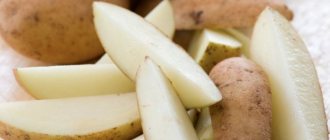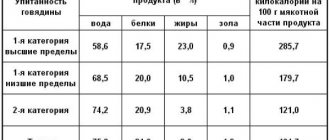Harm from vegetable oils
Vegetable oil, which has a higher calorie content even compared to lard, can cause irreparable harm to human health if consumed in excess. It also poses a danger when the original raw materials are genetically modified or treated with pesticides, which are used to manufacture a mass product.
To increase shelf life, industrial oils may contain a certain amount of artificial preservatives that are unsafe for the human body.
Healthy fatty acids have a very unstable structure and are easily oxidized under the influence of sunlight, oxygen and increased temperature. And oxidized fat can lead to inflammatory processes and mutations at the cellular level, causing various diseases.
During the refining and deodorizing process, the oil is treated with hexane, an organic solvent that can be considered analogous to regular gasoline. After separating the oil, the chemical compounds are washed off with water steam and alkaline solutions, and then bleached in a vacuum, but it is unlikely that they can be completely removed.
Therefore, partial residues of these compounds end up in the contents of the purchased bottle. Therefore, the consumption of refined oils, as well as industrial products containing them, should be kept to a minimum, or even better, completely excluded from the diet.
In addition, it is unacceptable to reheat used vegetable oil, as a result of which stable carcinogenic compounds are formed.
Chemical composition, nutritional value, calorie content
The composition of sunflower oil is not constant; the combination of substances depends on the region and the conditions in which the plants were grown.
Each oil is almost 100% fat, and sunflower oil, in addition to stearic, palmitic, oleic, peanut, and linoleic fats (important for the central nervous system, heart and digestion), contains:
- vitamin A, which prevents the withering of the epidermis and hair loss, prevents dandruff, strengthens the immune system and regulates digestion;
- D, responsible for strong and healthy bones, nails, teeth and preventing diseases of the endocrine system;
- F (including Omega 3 and 6 acids) strengthens blood vessels, has a beneficial effect on the structure of hair and skin, prevents the formation of blood clots, atherosclerosis and varicose veins, and also normalizes blood circulation;
- E (tocopherol), which regulates reproductive function, prevents cell wear and the development of cancer (unrefined sunflower oil contains 12 times more tocopherol compared to other fats);
- mineral compounds, proteins, phytin, tannins, lecithin and carbohydrates.
Sunflower oil does not contain cholesterol, therefore the product is allowed to be consumed by heart patients with atherosclerosis and those suffering from obesity, despite the super-calorie content of the oil - 100 g contains 884 kcal.
Calorie content
Vegetable oil, the calorie content of which exceeds the energy value of all animal fats, can hardly be called a dietary product.
Vegetable oil, calorie content and composition.
| Product quantity | kcal |
| 100 g butter | 900 |
| 1 tablespoon | 107 |
| 1 teaspoon | 45 |
Recipes
Due to the fact that the energy value of dishes with butter is high, those who are watching their weight need to carefully select their diet and not overuse sauces and other additives. The calorie content per 100 grams of mayonnaise prepared at home is on average 250–300 kcal.
Homemade mayonnaise “Provencal”
- 1 tablespoon vinegar;
- 2 pinches of ground black pepper;
- 1 teaspoon granulated sugar;
- 1\2 tsp. salt;
- 1 teaspoon mustard sauce;
- A glass of refined vegetable oil;
- Two eggs.
Separate the yolks and whites. Beat the yolks with a whisk or use a mixer. Add mustard sauce, granulated sugar, pepper, salt. Slowly, in small streams, pour in the oil and whisk the sauce. Pour in vinegar, replacing with lemon juice if desired. Continue beating, the mixture will lighten. Add one protein, beat thoroughly until the mayonnaise becomes less thick. Add salt or vinegar if desired. To keep the sauce thick, no protein is added.
THESE ARTICLES WILL HELP YOU LOSE WEIGHT
Content of proteins, fats, carbohydrates
The calorie content of different types of vegetable oils, as well as the nutrient content in their composition, may differ depending on the type. Basically, they all contain approximately the same amount of fat (from 90 to 100 g) with the complete absence of proteins and carbohydrates.
The only exception is chocolate cocoa bean butter, which contains per 100 g of product:
| Squirrels | 1.5 g |
| Fats | 62 g |
| Carbohydrates | 18.6 g |
| Calorie content | 642 kcal |
Calorie content - 899 kcal
The labels of bottles of sunflower oil often indicate the calorie content of the product per 100 g. It is 899 kcal. Most consumed oils obtained from plants - flaxseed, corn, sesame, coconut and sunflower oil - have approximately the same calorie content per 100 grams - 898-899 kcal. And only cold-pressed olive oil provides the body with 884 kcal.
Marketing ploys about the absence of cholesterol in vegetable fats make nutritionists smile - cholesterol is only found in products of animal origin. In pursuit of profit, even sunflower oil is often labeled with such inscriptions.
Daily requirement
Vegetable oil, the calorie content of which in the daily diet of an adult should not exceed 300 kcal, is sufficient to consume in an amount of no more than 2-3 tbsp. l. per day.
With such a reasonable distribution of healthy fats obtained from high-quality, unrefined, cold-pressed vegetable oil, a person will be able to maintain a normal weight and not violate the daily intake recommended by nutritionists. This amount fully covers the required intake of essential elements for the absorption of fat-soluble vitamins and does not cause harm to health.
You need to consume vegetable fats fresh, seasoning vegetable salads with them, then the body will be able to get the maximum benefit from them.
Daily intake of sunflower oil
Answering the question about how much vegetable oil you can eat per day in order not to gain weight, sports nutrition specialists and nutritionists say no more than two (maximum three) tablespoons per day. This amount also includes sunflower oil. In this case, its calorie content will not exceed 300-450 kcal per day. This figure is well within the norms for the consumption of healthy fats designed for people losing weight.
In a diet for weight loss, 30% should be fats and 60% carbohydrates. Moreover, the main share (60-70% of the total amount of vegetable oil) is unrefined sunflower oil - the most useful product with all the vitamins and microelements preserved in it after processing. It differs from others by the presence of a dark shade, acceptable sediment and a pronounced aroma of roasted seeds. It can be used to season vegetable salads, but this product is not suitable for cooking food. No experienced housewife would risk frying fish, meat or vegetables in such oil, since in a hot frying pan it splashes, foams, burns, and also adds bitterness to the finished dish. For frying, refined sunflower oil is better suited, the calorie content of which does not differ from the nutritional value of other types of this product (899 kcal). This oil is pale yellow in color, transparent, and does not have the specific smell or taste of sunflower.
Glycemic index
The value of the glycemic index of a product shows the time and rate of increase in blood glucose levels after its entry and breakdown into the human body. This factor is especially important for diabetics, who must monitor the amount of insulin.
The glycemic index of vegetable oils is 0; for comparison, this indicator in butter is 51. Therefore, for diabetes and obesity, it is necessary to limit the amount of animal fats as much as possible, replacing them with high-quality vegetable oils.
Nutritional value of vegetable oils
Vegetable oil is the most common type of fat, widely used in nutrition. They are extracted from crushed heated seeds and fruits by pressing (squeezing) or extraction.
Due to their composition, vegetable oils are physiologically very active, and their nutritional value is mainly determined by the content of polyunsaturated fatty acids (linoleic and linolenic) necessary for our body to build cells; they are also responsible for the synthesis of hormones, maintaining immunity, giving stability and elasticity of blood vessels, reduce the body's sensitivity to ultraviolet rays and radioactive radiation, regulate the contraction of smooth muscles, and perform many other vital functions. These substances are retained in the oil even after deep refining.
Rapeseed oil is extracted from the seeds of oilseed rape, which belongs to the cruciferous family. Rapeseed oil is one of the most consumed vegetable oils in the world, along with sunflower and soybean oil.
- Energy value, kcal – 899
- Fats,% - 99.9
- Saturated fatty acids, % -10(8-12)
- Polyunsaturated fatty acids,% – 33 (12-54)
- linoleic, % -15-25
- linolenic, % -7-15
- Cholesterol, mg% - 0
- Phosphorus, mg% - 2
- Vitamin E, mg %TE - 18.9
Rapeseed oil is characterized by a balanced combination of saturated, polyunsaturated and monounsaturated fatty acids. It is a source of essential fatty acids and contains large amounts of vitamin E. The value of rapeseed oil lies in the fact that it is rich in polyunsaturated fatty acids (linoleic, linolenic), which help strengthen the walls of blood vessels and reduce cholesterol levels in the blood. Additionally, like other vegetable oils, rapeseed oil contains no cholesterol and is a rich source of vitamin E.
Rapeseed oil remains transparent for a long time and does not acquire an unpleasant odor when exposed to air.
In terms of application, rapeseed oil is similar to sunflower, olive, and soybean oil. It is used for dressing vegetable salads, frying meat, fish, potatoes, for preparing marinades, mayonnaise and other sauces.
Flaxseed oil is a vegetable oil obtained from flax seeds.
- Energy value, kcal – 898
- Fats,% - 99.8
- Saturated fatty acids,% - 9.6 (8.-10.7)
- Polyunsaturated fatty acids,% - 67.7 (38.3-97.0)
- linoleic,% -15-30
- linolenic,% – 44-61
- Cholesterol, mg% - 0
- Phosphorus, mg% - 2
- Vitamin E. mg %TE – 2.1
In terms of its biological value, flaxseed oil ranks first among edible oils. Flaxseed oil contains valuable unsaturated fatty acids (linoleic, linolenic), as well as vitamin E, phosphorus and other substances necessary for a healthy diet. The uniqueness of flaxseed oil lies in its high content of linolenic acid (more than in other vegetable oils and fish oil).
Flaxseed oil is ideal for dressing vegetable salads and gives a pleasant yellowish-orange tint to baked goods, pies, and fried potatoes. The oil is not subject to heat treatment, so it is added to cold and ready-made hot dishes. Can be used both in pure form and in mixture with other vegetable oils, can be mixed with honey, fruit, syrup.
Healthy lifestyle office
Changes in the beneficial properties of oil during heat treatment
At the smoking point, substances harmful to the human body are formed in vegetable oil:
- acrylic acid aldehydes cause lacrimation, and have a strong irritating effect on the mucous membrane of the organs of vision and breathing, accumulate in the body;
- amides of the same acrylic acid cause damage to the nervous system and liver cells, especially a lot of them are formed when frying starch-containing products;
- toxic substances in the form of free radicals, heterocyclic amines and polymers formed as a result of combustion and smoke cause danger already at the stage of inhalation, as well as upon contact with the skin.
| Type of vegetable oil | Smoke point, °C |
| from avocado | 270 |
| mustard | 250 |
| from soy | 234 |
| olive refined | from 190 to 240 |
| corn refined | 231 |
| made from peanuts | 229 |
| sunflower refined | 227 |
| corn | 178 |
| sesame | 177 |
| sunflower | 160 |
| linen | 107 |
Do not overuse fried foods, cook in hot oil, or overheat dishes. It is necessary to fry using foods with a high smoke point, choosing refined fats, and using oil only once. Do not cook over high heat for too long, as overcooking foods leads to the formation of more harmful substances in their composition.
Under the influence of sunlight and time, oxidation processes occur in the oil, which cause the product to go rancid, making it unfit for consumption. This happens very often and quite quickly with pumpkin seed oil, which begins to spoil at room temperature within a few hours.
Any oil must be stored correctly; it is advisable to use a dark glass bottle, placing it in a dark and cool place.
Benefits and harms
It is known that vitamin F found in vegetable oil, in other words, linoleic acid, cannot be replaced by anything else - this is the most necessary vitamin for the human body.
Vitamin F affects the following:
- Improves the nerve fiber sheath;
- Accelerates the formation of cell membranes;
- Removes cholesterol;
- Normalizes the condition of the walls of blood vessels;
- Prevents atherosclerosis;
- Prevents myocardial infarction;
- Provides preventive effects on cancer;
- The benefit is a rejuvenating effect on the skin, slowing down cellular aging;
- There are benefits for the functioning of the intestines, lungs, stomach, liver;
- Normalizes the functions of the endocrine and sex glands;
- The next benefit is improved memory;
- Carries out the exchange between proteins and carbohydrates.
Stores vitamins E, A, , K, B12, B9, B6, B5, B2. . Useful choline, beta-carotene, sodium, phosphorus, iron. Many important substances: manganese, copper, selenium, zinc, magnesium, calcium, potassium. The greatest benefit lies in unrefined oil, and the best option for use is the “raw” form.
There is only one contraindication - large quantities when consumed. The calorie content per 100 grams is very high, which can negatively affect the figure. It is important to use only fresh, not expired products, because... When a spoiled product is consumed, oxides are formed in the body, which impair metabolism. An open bottle can be stored for no more than a month.
Table
There are many varieties of vegetable oils known, to compare the qualities and uses of which a special table has been created, divided into four columns: type of vegetable oil, composition, properties, application. A brief description of each variety, as well as its use in one form or another. Most housewives, especially beginners, will find it useful to familiarize themselves with it.
How to use vegetable oils on a diet?
Nutritionists in many diets strictly regulate the intake of healthy vegetable fats to the minimum allowable amount of 1-2 tbsp. l. per day, which will lead to gentle and stable weight loss in natural conditions for the body.
While on a diet, it is necessary to include unrefined vegetable fats in your daily diet; nutritionists especially recommend that you pay attention to cold-pressed almond, apricot, olive or sesame oil, which are ideal for dressing salads or making sauces.
Flaxseed oil in moderation also has a beneficial effect on the process of weight loss, due to lipid metabolism and accelerating metabolism.
Castor oil helps in the fight against excess body weight due to its cleansing properties and removal of toxins from the body. It is even recommended to use it in a 10-day course on an empty stomach in the morning, which leads to normalization of stools and regular bowel emptying.
Milk thistle oil helps reduce blood glucose levels, speeds up metabolic processes and promotes weight loss. But even the highest quality oil will not lead to weight loss without proper nutrition and the necessary physical activity.
Vegetable oil is a high-calorie product with a lot of useful substances. It has a number of significant restrictions on use, so it is worth using it in the daily diet in limited quantities, taking the necessary precautions to select and use only high-quality fats in food.
Sunflower oil
Vegetable oil obtained by filtration or extraction from the kernels of sunflower oilseeds. Sunflower oil is the most common vegetable oil in Russia and Ukraine, which are world leaders in its production.
The pour point of the oil ranges from -16 to -19 degrees, the smoke point is 232 degrees.
Manufacturing
Sunflower oil is extracted from the kernels of the plant's seeds. To do this, the seeds are cleaned of husks and debris, then passed through rollers, forming mint, which falls under the press, having previously undergone heat treatment. The resulting oil is sent for settling and filtration.
After the first extraction, pulp remains, which contains up to 22 percent oil. It is obtained by extraction with organic solvents, which are subsequently distilled off.
The oil, which is obtained by pressing or extraction, is sent for purification and filtration, which includes the stages of settling, centrifugation, filtration, alkaline or sulfuric acid refining, hydration, bleaching, deodorization, and freezing.
Kinds
Sunflower oil is divided into the following types:
- virgin oil is characterized by the largest amount of useful substances, including sterols, phosphatides, and tocophenols. It has a distinct smell and taste, but has a short shelf life.
- unrefined oil is obtained from virgin oil by passing it through a mechanical refining stage without additional processing. It also contains a large amount of useful substances and is used to season dishes and add to baked goods.
- During the production process, hydrated This oil has a less pronounced smell and taste, and lacks protein substances.
- Refined sunflower oil undergoes more thorough purification: phospholipids and fatty acids are removed from it using alkali, then bleached.
- Refined deodorized oil is produced by exposure to steam in a vacuum. It is stored for a long time, but has a weak taste and smell. Used for cooking dishes at high temperatures.
- frozen oil is cooled to 10-12 degrees. At this temperature, wax crystals begin to form in it, which are subsequently filtered out. This oil is characterized by high transparency and lack of cloudiness when cooled. It is stored for a long time, does not form foam when frying and does not smoke.
Calorie content
100 grams of product contains 900 kcal.
Compound
Sunflower oil contains stearic, palmitic, myristic, arachidic, oleic, linoleic, linolenic fatty acids, as well as vitamins E, K, F.
Usage
Sunflower oil is used for dressing salads, porridges, frying, baking, stewing, canning, preparing deep-fried dishes, and producing homemade mayonnaise and margarine.
It is worth noting that for preparing hot dishes, frying, stewing, deep-frying, it is better to use refined sunflower oil, and for dressing salads and porridges, it is better to use unrefined oil, which contains more nutrients and vitamins, and in addition, has an original taste that enhances the aroma dishes.
Storage
It is recommended to store sunflower oil away from light, in a container with a closed lid.
The shelf life of unrefined sunflower oil is 2 months.
Once it develops a sediment or rancid taste, it is not recommended to use it.
Beneficial features
Sunflower oil contains unsaturated fatty acids, which are used by the body to form the sheaths of nerve fibers and cell membranes; it lowers the level of “bad” cholesterol in the blood, so it can be used as a preventive measure for heart attack, atherosclerosis and other diseases of the cardiovascular system.
The oil contains vitamin E in large quantities, which is a natural antioxidant, saturates the body's cells with oxygen, prevents the destruction of red blood cells, maintains the elasticity of blood vessels, the function of the gonads, slows down the aging process of cells, and reduces the likelihood of skin cancer.
Vitamin F helps normalize the functioning of the nervous system, reduces the amount of inflammation in the body, and promotes wound healing.
In folk medicine, sunflower oil is used to treat chronic diseases of the stomach, lungs, liver and intestines, and to relieve toothache.
It improves immunity, normalizes the functioning of the endocrine glands, activates mental activity, and takes part in protein-carbohydrate metabolism.











